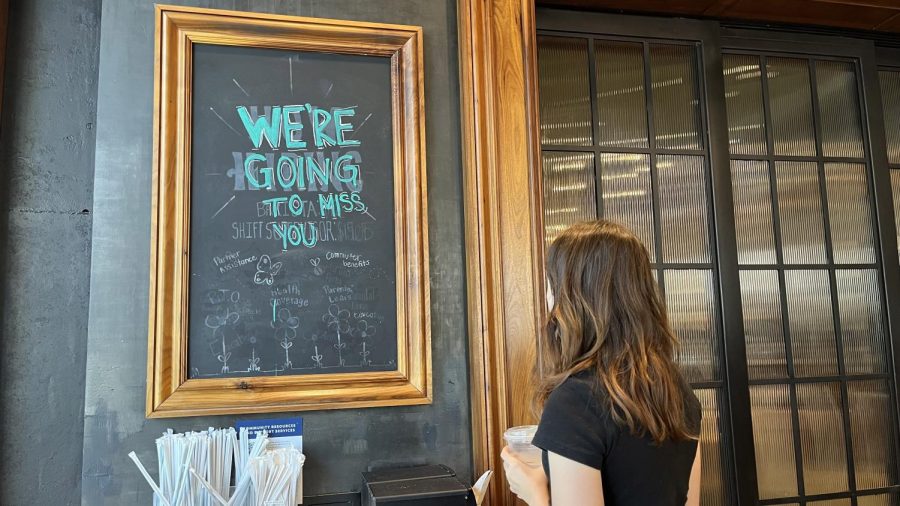Canal Street Starbucks closes due to high crime rate
Starbucks on Canal St. closing due to increase in crime rate. Customer looks at sign saying farewell to the location.
October 10, 2022
Loyola students, known for forming a line around the satellite Starbucks location outside the university dining hall, will no longer be able to visit another branch of their favorite coffee shop in downtown New Orleans.
On Sept. 16, Starbucks announced the shutdown of its Canal Street location effective Oct. 2, due to staff security and safety concerns. As a result of New Orleans’ tremendous spike in violent crime, the business decided to close its doors.
Starbucks issued a nationwide statement in July addressing the increasing issues communities around the country are facing such as personal safety, racism, lack of access to healthcare, a growing mental health crisis, and rising drug use. Additionally, according to the Metropolitan Crime Commission, New Orleans homicides are up 44% from this time last year and 142% since 2019.
“With stores in thousands of communities across the country, we know these challenges can, at times, play out within our stores, too,” Starbucks said.
They also announced a new emphasis on safety in order to create “a welcome and kind” place for both employees and customers.
According to the statement, new tools will be implemented to combat the risk of workplace crime, such as safety training programs, optimizing store layouts, changing store hours, and if needed and in the case of the downtown store, closure.
Starbucks media relations representative Sam Jeffries said that when it comes to “high incident” locations like the Canal Street store, there are only a few options when employee safety is a concern and that closing was the last option.
“These things take a long time to unfold,” he said, adding “You do a lot in the interim to try and make situations and your store environment better.”
Jeffries said that the decision to close the store was not based on a specific incident or time period but rather on conversations with the store’s employees and their inability to meet expectations due to fearing their safety at the store.
“There are all of these things that are impacting communities across the country whether it’s mental health crisis, crime and public safety or chronic homelessness – all of these things are affecting Starbucks as well,” he said.









